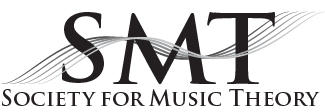Report from the Three Seminars on Contemporary Music with Connection to the ISCM World Music Days in Copenhagen, 1996
Per F. Broman
KEYWORDS: ISCM, Boulez, Pli selon Pli—Portrait de Mallarme, Erling Gulbrandsen, IRCAM, Georgina Born
ABSTRACT: University of Copenhagen, Department of Musicology hosted a three-day series of lectures in conjunction with the ISCM World Music Days in Copenhagen 1996. The unifying thread running through all seminars was institutionalization of the avant-garde and the concept of pluralism. Of particular interest from a theoretical perspective was the presentation of Norwegian young scholar Erling Gulbrandsen’s recent doctoral dissertation on Boulez’s Pli selon Pli.
Copyright © 1996 Society for Music Theory
[1] The ISCM World Music Days is an annual festival for contemporary music and this year’s event was held in Copenhagen, the 1996 Cultural Capital City of Europe, September 7–14. In conjunction with the festival, the University of Copenhagen’s Department of Musicology hosted a three-day series of lectures featuring Georgina Born (London): “Pierre Boulez’s IRCAM. Institution, History, and the Situation of Contemporary Music Today”; Erling Gulbrandsen (Oslo): “New Light on Pierre Boulez and Postwar Modernism”; Reinhard Oehlschlagel (Cologne): “Institutions of New Music: Development, Typology, Problems”; shorter papers were read by a panel including Per O. Broman (Uppsala), Erik Wallrup (Stockholm) Jens Hesselager (Copenhagen), Steen K. Nielsen (Aarhus), and Per F. Broman (Stockholm) and were followed by a discussion. This final session was chaired by Soren Moller Sorensen (Copenhagen).
[2] Georgina Born’s presentation consisted of a brief review of her recent book Rationalizing Culture: IRCAM, Boulez, and the Institutionalization of the Musical Avantgarde (Berkeley: University of California Press, 1995), followed by a new, more elaborate discussion of the cultural policy for supporting composers—a topic hinted at in the final chapter of her book. She argued that big institutions might not be the best way to support composers, that instead scholarships for longer periods of time, maybe for ten years, should be granted. Reinhard Oehlschlagel provided a much more positive description of the present situation in which the contemporary musical institutions (sometimes, according to his definition, consisting of only two persons) contribute to a pluralistic musical discourse.
[3] Of particular interest from theoretical perspectives was Erling Gulbrandsen’s recent doctoral dissertation on Boulez’s Pli selon Pli. Based on archive studies, done at the Paul Sacher Stiftung (Basel), of the sketches and of a work that Boulez had rejected, the author traces the work’s pitch structures. Although Gulbrandsen spent much time performing detailed archive studies that revealed much of the work’s organization, he selected to emphasize the “important role of free choice and unpredictability in the process of composition, strongly indicating the deeper kinship not only with the poetics of Mallarme, but with the romantic-aesthetic categories of judgment, taste, musical articulation, and play.”
[4] The panel of final day’s session “Pluralism—the Cultural Condition,” presented critical papers on the institutions of ISCM (Jens Hesselager) and Darmstadt (Per F. Broman). There were also presentations focusing on the alternative aesthetics challenging the modernist traditions: Per O. Broman’s reading of electro-acoustic music as a musical subculture with strong affiliation to popular “industry-music”; and Erik Wallrup’s and Steen Nielsen’s presentations of works and aesthetics by non-mainstream composers such as Karin Rehnqvist, Michael Nyman, and Steve Martland. The ensuing discussion illustrated the difficulties surrounding the concept of pluralism. The participants could not even agree on any consensus in regard to the use of the term, and, indeed, the debate illustrated Soren Moller Sorensen’s introductory words: “Pluralism is more than just a truce between conflicting positions and laissez-faire attitudes in political, ethical and aesthetic affairs. To learn to live with pluralism is to learn to live in a world that can no longer be meaningfully organized around a central hub of 'natural' authority.”
Per F. Broman
Lulea University, Sweden
School of Music in Pitea
Box 744
S-941 28 Pitea, Sweden
per.broman@mh.luth.se
Copyright Statement
Copyright © 1996 by the Society for Music Theory. All rights reserved.
[1] Copyrights for individual items published in Music Theory Online (MTO) are held by their authors. Items appearing in MTO may be saved and stored in electronic or paper form, and may be shared among individuals for purposes of scholarly research or discussion, but may not be republished in any form, electronic or print, without prior, written permission from the author(s), and advance notification of the editors of MTO.
[2] Any redistributed form of items published in MTO must include the following information in a form appropriate to the medium in which the items are to appear:
This item appeared in Music Theory Online in [VOLUME #, ISSUE #] on [DAY/MONTH/YEAR]. It was authored by [FULL NAME, EMAIL ADDRESS], with whose written permission it is reprinted here.
[3] Libraries may archive issues of MTO in electronic or paper form for public access so long as each issue is stored in its entirety, and no access fee is charged. Exceptions to these requirements must be approved in writing by the editors of MTO, who will act in accordance with the decisions of the Society for Music Theory.
This document and all portions thereof are protected by U.S. and international copyright laws. Material contained herein may be copied and/or distributed for research purposes only.
Prepared by Lee A. Rothfarb, General Editor and Tahirih Motazedian, Editorial Assistant

